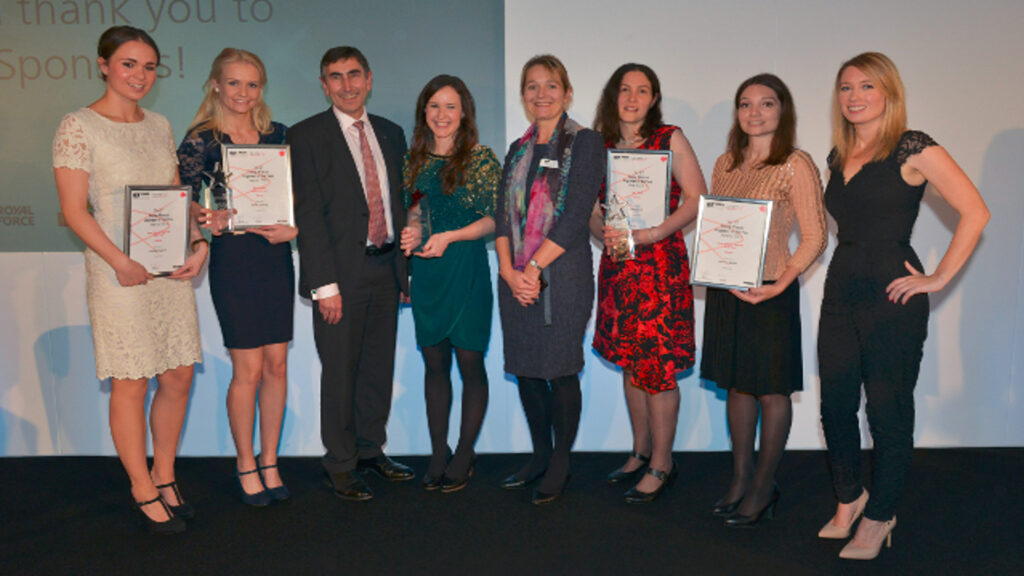Whether you’re still in education or a few rungs up the career ladder, we could all do with inspiration to show us what is achievable and to gain an insight into what others are doing in the field of design and engineering. 
This month our role model is Naomi Climer who looks back on her career sharing her most memorable work moments and her views on the benefit of diversity in the design and engineering workforce.
With a degree in chemistry from Imperial College London, Naomi Climer’s career has been spent in the broadcast and communications technology industry including at the BBC, ITV and Sony both in Europe and the US.
Naomi Climer FREng, BSc, HonDUniv, HonDEng, CEng, FIET, HonMWES has an impressive string of accomplishments to her name. She is a trustee and immediate past president of the Institution of Engineering and Technology (IET), chair of the International Broadcasting Convention (IBC) Council and chair of the UK Government (DCMS) Future Communications Challenge Group (FCCG) looking at the technology opportunities for the UK around 5G and the Internet of Things.
Naomi Climer is also a Governor on the Board of the National Film and Television School (NFTS), a commissioner on an independent commission on the Future of Work and also works as a consultant with the Board of Sony’s UK Technology Centre.
What do you most enjoy about your job?
I have loved the variety of my jobs throughout my career. There is so much scope within engineering to do different things, solve interesting problems, meet new people and travel to great places. I’ve basically been able to spend a lifetime doing amazing things.
What inspired you to become an engineer?
I became an engineer almost by accident – it wasn’t a deliberate choice. In fact, I have a science degree so it was more that engineering was the first proper job I managed to get! Once I started work, I knew engineering was for me and I never looked back.
What has been one of the biggest challenges you’ve faced in getting to where you are?
I’ve faced all sorts of challenges along the way – I don’t think that’s unique to engineering. I guess there were times when it was hard to keep pushing myself to learn something new, to step slightly outside my comfort zone.
Over a lifetime, this continuous improvement approach has helped me to achieve much more than I might have done otherwise.
What has been a career high or most memorable work moment?
I have had so many high points at work. The day they turned the transmitter on for IslandFM – a radio station that I had built – and music came out of my radio. The day I signed the contract for Sony to acquire HawkEye.
The October day I sat in the sunshine in a deckchair at my new workplace on the Sony Pictures lot in California drinking a morning coffee and reflecting that life was pretty good.
My year as IET President – being able to meet people from the vast spectrum of engineering and feeling so proud to be an engineer.
In terms of your career, who has been your role model?
I haven’t had a single role model. Unfortunately there weren’t many very senior women around through my career, but there are beginning to be more of them now.
I generally treat everyone as a potential role model and cherry pick the bits that I like to create a composite role model built from many individuals. That said, I would give credit to my mum – she’s an amazing woman!
What is your view on diversity in the engineering and design workforce?
The engineering and design workforce would benefit from being more diverse. I’m convinced that the creative and technical outcomes are better when you have a diverse set of brains working on it. (Actually, there’s all sorts of solid evidence on this.) We’d have better engineering and design outcomes if the workforce reflected the range of people who might be impacted by them.
With the advantage of hindsight, what career advice would you give to your younger self?
Unfortunately I doubt that my younger self would listen to advice from someone like me… I’d tell me to stay true to doing what I love and to keep being who I am in order to be at my most powerful. It’s great advice, but easier to do the more senior you get.
Unfortunately, in the early career stages you do have to do a certain amount of compromising to work well within a team.
If you were hosting a dinner party who would you invite and why?
I’d invite my extended family. My family is really important to me and I always want to see them more. Also, I’m not exactly a domestic whizz, so I’d need to invite people who weren’t likely to be critical of whatever I’d attempted to cook. (Family probably know me well enough to have a snack before they arrive…)






